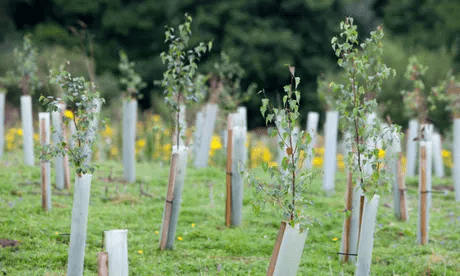In Short : The EU Parliament approves anti-greenwashing legislation, signaling a commitment to combat deceptive environmental claims. This measure aims to enhance transparency and credibility in sustainable investments, aligning with efforts to address greenwashing and promote genuine eco-friendly practices.
In Detail : Members of the European Parliament have voted overwhelmingly in favour of implementing a new directive to ban businesses from making misleading or hard-to-understand green claims aimed at consumers.
At a Parliament meeting in Strasbourg on Wednesday (17 January), 593 MEPs voted to pass the directive while only 21 voted against its implementation. The deal still needs the approval of the EU Council but this is likely to happen swiftly.
Under the directive, businesses selling in the EU will not be permitted to make vague claims about the environmental impact of their products or services unless they can be backed up with evidence. Claims in the firing line include ‘eco-friendly’, ‘environmentally friendly’, ‘natural’, ‘recycled’ and ‘biodegradable.
Another point of contention is claims supported by carbon offsetting. Businesses will essentially be banned from labelling their offerings as ‘climate-neutral’ or ‘carbon-neutral’ if they rely on offsetting to balance their emissions sheets. This is due to widespread concern about the credibility of some carbon offsetting schemes.
“There is no such thing as ‘carbon-neutral’ or ‘CO2-neutral’ cheese, plastic bottles, flights or bank accounts. Carbon-neutral claims are greenwashing, plain and simple,” said Ursula Pachl, the deputy director of EU consumer advocate body BEUC.
Additionally, the Directive will put an end to claims that conflate progress made on one topic or about one product with the company’s overall environmental footprint.
Changes are set to come into force from early 2026 because, thanks to the Parliament vote this week, EU member states now have two years to transpose the directive into their own national laws.
The Directive’s passage into fruition has been lengthy and much-anticipated. It was first proposed by the European Commission in March 2022.
Businesses of all manner of sizes and sectors will be impacted. The EU estimates that three-quarters of products sold within the bloc currently carry a green claim and has heard evidence that more than half of them are vague or misleading.
The European Environmental Bureau’s policy officer Miriam Thiemann welcomed the news, stating that the law “cuts through the smoke of misleading green marketing, putting a leash on shady claims and boosting the credibility of sustainability labels”.
Regarding certifications and labels, the Directive will result in a temporary ban on the creation of new ecolabelling scheme. For existing labels, a review process will be kick-started, requiring schemes to have a third-party verification element to enhance their credibility and reliability.
Each member state will have to select which “national competent authority” it will task with overseeing the ecolabel requirements. These can be existing regulators or watchdogs, or nations may wish to create new organisations.
Due to Brexit, the rules do not apply in the UK. But as many UK-based businesses sell into EU markets, the directive will likely have a ripple effect on the product messaging seen in Britain.
Early obsolescence
Coupled with the directive on green claims is a new requirement for manufacturers and retailers to provide customers with information on the repairability of products. This information will need to be available at the point of sale. A wide range of product categories are covered including electronic goods, electricals and furniture.
Traders will be forbidden from advertising used or faulty goods without making this information clear to customers. But there is a loophole – if a trader claims they were not aware of any potential problems, they are exempt from this requirement.
The requirements are intended to complement existing ‘Right to Repair’ legislation. Passed in 2021, that package mandates that sellers offer a repair within a legal guarantee and ensure that repairs beyond the guarantee period are simple.
But some had hoped that the new directive would go further, ending the business practice of intentionally designing products for shorter lifetimes to encourage earlier replacement purchases. This is known as early obsolescence or planned obsolescence.
Join edie’s upcoming anti-greenwash hour
On Thursday 25 January 2024, edie is hosting ENGAGE – an afternoon of back-to-back online events all focused on improving corporate approaches to green reporting, disclosure, communications and engagement.
As part of this, experts from innocent Drinks, the UN Environment Programme and Ad Net Zero UK will be presenting never-before-seen, quick-fire case studies on combatting greenwashing.

